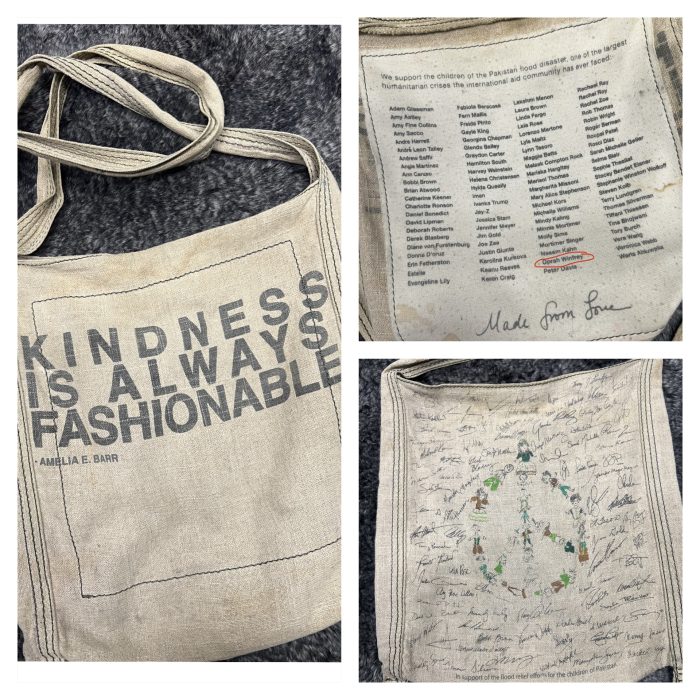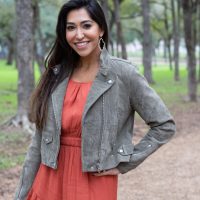More on this topic:
Why Anti-Semitism is En Vogue.
I Do Not Believe more Children need to Die to Pay for my Family’s Suffering.
~
*Editor’s Note: Elephant Journal articles represent the personal views of the authors, and can not possibly reflect Elephant Journal as a whole. Disagree with an Op-Ed or opinion? We’re happy to share your experience here.
~
On August 18th, 2010, when I was living in Michigan and my first born was only a year old, I received an email from UNICEF titled: “URGENT: Pakistan Relief Efforts in Jeopardy.”
Being Pakistani-American myself, the email caught my attention. The United Nations was calling this the “worst natural disaster in recent human history.” The email stated that over six million children in Pakistan were in grave danger.
Apparently, the impact of the monsoon rains and heavy flooding was greater than the tsunami of 2004, Hurricane Katrina in 2005, and the earthquake in Haiti that happened earlier that year combined.
The first thought that crossed my mind was, “Why am I just now finding out about this, through an email? Why aren’t the news stations reporting this?!”
I was flabbergasted.
I quickly decided to take matters into my own hands and forwarded that UNICEF email to literally every single person in my address book.
But as a new mom with a young son, my heart ached for the helpless children in Pakistan. I couldn’t get the images out of my head, and I couldn’t understand why the issue wasn’t getting any media coverage. I naively thought that perhaps it was just a matter of a lack of awareness, and that if only the news media outlets found out how dire the situation was, of course they would report on it. Why wouldn’t they?
How little I knew back then.
If only it were that simple…
I took it upon myself to create fliers about the situation in Pakistan and went door to door to local businesses with my son in a stroller to spread awareness in my suburb of Grosse Pointe, Michigan. Many kindly allowed me to post the fliers in their establishments. I’m sure the stroller helped.
But I felt that it wasn’t enough.
I knew that a massive humanitarian crisis like this would need massive global assistance. So I came up with the idea to appeal to famous people. I created my first Twitter account and shamelessly started tweeting celebs, recruiting friends to help. We would follow people of influence, and as soon as we saw them active, we would blast them with tweets about the Pakistan floods. We figured out the algorithms and had a systematic plan and, as this was in the earlier days of Twitter’s popularity, we had decent responses with the retweets.
And yet, I still wasn’t satisfied.
Time was of the essence, and we needed to appeal to someone who had major influence to make the greatest impact.
Someone like…Oprah.
I’ve always been a huge fan, and 2010 happened to be the last season of “The Oprah Winfrey Show.” As a psych major who started off studying business and marketing, I was familiar with The Oprah Effect.
When Oprah spoke, people listened.
She had a profound impact with the Haitian relief efforts, and I knew that if she spoke about the Pakistan flooding crisis, people would willingly donate.
So on August 22, 2010, I created a petition called “Speak Up Oprah” on causes.com.
My plan was simple: I asked everyone to mail handwritten letters to Oprah’s studio in Chicago asking her to please speak up about the Pakistan floods on her show. Say something—anything. Even a sentence would suffice. Emails could easily get buried and deleted, but handwritten letters flooding into the studio’s physical mailbox would be hard to miss. I even drafted a sample to make it as easy as possible. I was determined to not give up until she spoke up.
During this time, we continued to use Twitter as our main source of outreach to spread awareness. We were still tweeting celebs and influencers, in addition to Oprah, her friends, and her studio producers. We succeeded in getting some attention from her producers and acquaintances, and it was during this time that I got in touch with the founder of TwitChange, social activist Shaun King.
He wasn’t as well known at the time, but I remember reading that he had created an online celebrity auction for humanitarian efforts for Haiti and had managed to raise over $531,000. I figured he might be a good resource to ask for help with the Pakistan relief efforts.
Shaun and I had a handful of correspondence and phone conversations, and while they ultimately didn’t lead anywhere, he did
offer me some good advice that I remember to this day. He told me to stop wasting my time and energy depending on other people. If I want something done, instead of complaining about how no one is doing anything to help, I need to figure out a way to get it done myself. No one is going to come to save the day. People are fickle, and they will lose interest if there’s nothing in it for them.
People care to the degree that they can relate.
This was like a pinprick to my innocent bubble of optimism—it revealed the dark side of humanity, which was neither pretty nor comfortable. But it was the truth I needed to hear, and I appreciated it.
And although Oprah never did speak about the Pakistan floods during her final season on air, she did sign her signature (along with 99 other celebrities) under the words, “We support the children of the Pakistan flood disaster, one of the largest humanitarian crises the international aid community has ever faced,” as a show of solidarity on a bag created by fashion designer Rachel Roy.
The bag was a fundraising effort for the Pakistan floods crisis, and 100 percent of the proceeds were donated to the cause. We also had over 10,000 independent signatures on the “Speak Up Oprah” petition, so that was good enough for me.
Through my connections and conversations during that time with influential individuals like Shaun King, Derrick Ashong, and Khayyam Wakil, I learned another really hard lesson about human nature: things aren’t always as they appear.
There are hidden political and economic agendas and biases when it comes to humanitarian efforts, and what the media portrays. It wasn’t a conspiracy theory. We live in a well-curated system that is operated by unseen forces who control what we see and the narratives behind it.
I realized that because Pakistan is a Muslim country, it wasn’t in our government’s best interest to support the cause. Perhaps it’s because there are concerns about corruption within the Pakistani government too, and it was a matter of national security if the funds fell into the wrong hands. Or perhaps supporting a Muslim country would undermine the political and economic interests that the United States government has in the Middle East, and its alliance with Israel. This is all speculation though—who knows what the real reason is.
But to me, it’s evident that the U.S. government, along with the help of major news media outlets, has gone through great lengths to systematically “other-ize” Muslim countries and communities to make them seem un-relatable. Just look at the word “terrorist.” What do you think of when you hear that word?
When we dehumanize a group of people, we can’t relate to them.
And if we can’t relate, we’re not motivated to care.
Since then, and since the repeated cries for help regarding the Palestinian occupation over the past several decades that have continued to be silenced or fall on deaf ears, sadly, I am not at all surprised by the current state of the world that we’re in today.
I believe that when the world turns a blind eye to human suffering, that is the very thing that gives birth to acts of desperation, like violence and terrorism. It’s like being in denial about cancer as it slowly spreads throughout the entire body. Refusing to acknowledge an issue doesn’t make it magically disappear.
We don’t live in an isolated vacuum.
We are all connected.
We will either continue to suffer together, or we will need to learn how to heal together. And neither option is easy.
Borders, race, ethnicity, religion, politics—all of these are arbitrary, man-made labels that can often create more division, rather than unification. But when will we learn that separation is just an illusion?
I don’t think the problem is with religion.
Religion is a tool. For some, it helps them feel closer to God. The problem lies with the human beings who use religion, dogmas, or ideologies as justification for their hellish and divisive behaviors, for their decision to abuse, take advantage of, and control others.
But for God’s sake, can we please stop cherry picking religious teachings that justify this “holier than thou” mentality? If there is a such thing as sin, I believe that this has been the greatest one of all.
We all come from the same Creator, and we all deserve equal respect as creations of the Divine.
We need to learn how to see every single human being as our own kin. This is the one teaching we can find in all of the major religions, and it’s based on kindness, forgiveness, and unity.
We suffer, because we forget:
Love is the universal truth.
~
Please consider Boosting our authors’ articles in their first week to help them win Elephant’s Ecosystem so they can get paid and write more.
~












Read 2 comments and reply